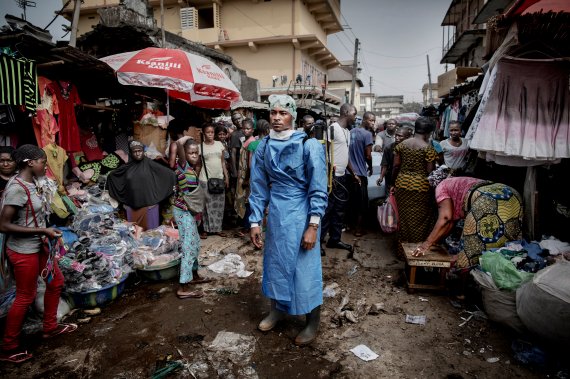Photo: Hollandse Hoogte
The Ebola epidemic in West Africa (2013-2016) killed more than 11,000 people, almost 40 percent of those infected with the virus. The Ebola virus occurs in wild animals in Africa and can be transmitted to humans through the consumption of infected meat, for example.
Survey
From December 2015, Richards and his colleagues conducted a survey to find out what exactly happened during the Ebola outbreak. At that point, the epidemic was at its peak, but the researchers visited villages in a region where the disease had already run its course.
In response to the reality of the disease, people learned to think like epidemiologists
The results make clear how infections progress and how all kinds of rumours suddenly appear and then blow over just as fast. ‘In response to the reality of the disease, people learned to think like epidemiologists,’ concluded Richards. In one of the villages the researchers visited, appropriate action by the villagers had practically wiped out the disease before international aid workers reached the village. This is what Richards means by ‘people’s science’ in the subtitle of his recently published book on the Ebola crisis.
Resistance
With an infectious disease such as Ebola, it is important that patients and healthcare workers agree on the important steps for preventing new cases, says Richards. ‘But all the action that needs to be taken to stem Ebola, from identification and isolation to safe burial, sometimes encounters resistance. That is why it is so important to find out how care is delivered and how people are buried. From that you can deduce where there is scope to change customary practices,’ Richards states in his book.
Read the full story about Richards and his book in the latest Resource

